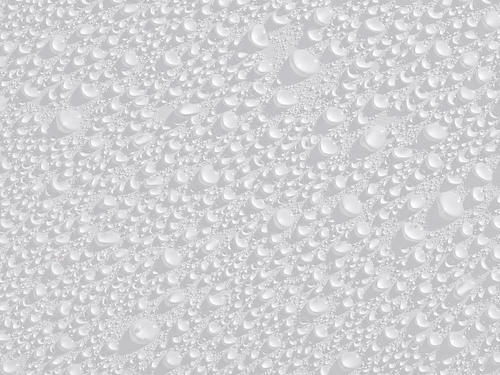Is Demineralized Water Bad For You?
Short answer
Demineralized water is “thirsty” - it’ll suck the nutrients you need in water from your food and from your body when you drink it.
Recommended Alternative
More beneficial to your health than not. However, harmful qualities are most likely associated and shouldn't be overlooked.
View Full Grading System
Category 'A'
Very healthy and numerous health benefits. Side effects are rare. Things rated an 'A+' are typically necessary for survival (for example, water).
Very healthy and numerous health benefits. A few harmful qualities may be associated, but only under certain circumstances such as an allergic reaction.
Very healthy and numerous health benefits. Harmful qualities may be associated, but aren't usually serious.
It is important to note that even the best things in life can become bad in immoderate amounts. So, although something may be rated an 'A+', overconsumption/overdoing can bring unwanted effects.
Category 'B'
Very beneficial to your health. Things rated a 'B+' may have a few harmful qualities to pay attention to.
Overall beneficial to your health. Things rated a 'B' may have some harmful qualities to pay attention to.
More beneficial to your health than not. However, harmful qualities are most likely associated and shouldn't be overlooked.
The main difference between category 'A' and category 'B' is the harmful qualities typically present in 'B' items. Serious side effects are usually uncommon, but are still possible and should be taken note of.
Category 'C'
Both beneficial and harmful qualities associated. Things rated a 'C+' are typically a bit more on the beneficial side. Still, moderation is important.
A fairly even ratio of beneficial and harmful qualities. Moderation is important. Very general topics that can lean towards both sides of the spectrum will be placed here as well. Rice, for example, can be good or bad depending on the type.
More harmful than beneficial. Side effects are common, especially when consumed/done excessively. Moderation is very important.
Category 'C' usually denotes to both good and bad qualities. When it comes to this category, it is important to keep this word in mind: moderation.
Category 'D'
Harmful to your health. Although benefits may be associated, the bad most likely outweighs the good. Moderation is very important.
Harmful to your health. A few benefits may be associated, but the bad outweighs the good. Moderation is extremely important.
Harmful to your health. Very few, if any, benefits are present. Things in this category should be avoided as much as possible.
Category 'D' is typically for things that are more harmful than beneficial. While consuming/doing something unhealthy once in a blue moon shouldn't hurt, we definitely recommend eliminating 'D' items as a regular part of your routine/diet.
Category 'F'
Category 'F' is for things that fail to bring anything beneficial to the table, and are very harmful to your health. We recommend completely avoiding anything in this category. Long-term side effects of 'F' items are usually very serious.
Category 'N'
'N' stands for neutral. Things placed into this category are generally (a) neither good nor bad for you, or (b) lack the necessary evidence to reach any conclusions.
Long answer
The body needs a certain amount of minerals and nutrients on a daily basis to stay healthy and operate normally. Some of those minerals come from food. Others, however, need to be absorbed through water. They include calcium, which is essential to the health of our bones and teeth, and magnesium, which is used nearly everywhere in the body.
Distillation processes remove those minerals from water - the demineralized water that's produced is referred to as "soft." It happens at desalination plants, where water is sometimes remineralized after salt and other minerals are removed. It also happens when you filter your water through a product like a Brita filter. Although home use of filters is unregulated, different regulatory bodies have varying standards for the levels of minerals that water from desalination or treatment plants needs to have.
Soft water is thirsty - it wants to have minerals and will leach those minerals from surrounding sources. A report published in the Medical Journal of the Armed Forces of India found that cooking with soft water leached significantly more minerals from vegetables than cooking with hard (mineralized) water.
The World Health Organization's white paper on demineralized water describes a similar effect in the human body. Not only does soft water lack the minerals and nutrients that our body needs from water; it reabsorbs those minerals inside of us. If you're getting calcium from milk, for example, soft water might suck that calcium back out of your system. That's particularly worrying in adolescents, whose bones are still growing, and in elderly women, who are at higher risk of conditions like osteoporosis.
There are important and legitimate reasons to filter water - not everyone has access to clean water with a healthy level of minerals, and many sources have been contaminated with genuinely dangerous chemicals. If you're filtering your water without good reason - out of an abundance of caution, or the mistaken belief that chlorine in the water supply is slowly killing you - you may want to re-examine your mineral intake and consider alternative methods of getting clean water that hasn't been stripped of the minerals that you need.
Potential concerns:
- Leaching of important minerals from food
- Leaching of important minerals from the body
- Does not have the calcium or magnesium your body needs
- Could increase risk of osteoporosis or bone fractures

Our Wellness Pick
(what is this?)
Essentia Alkaline Water
- pH 9.5 or higher
- Infused with electrolytes
- 99.9% pure
- Ionized for smoothness
- BPA-free packaging
Learn More!
Please turn your Ad Blocker off to see this content. Thank you!


 Approved by
Approved by 














